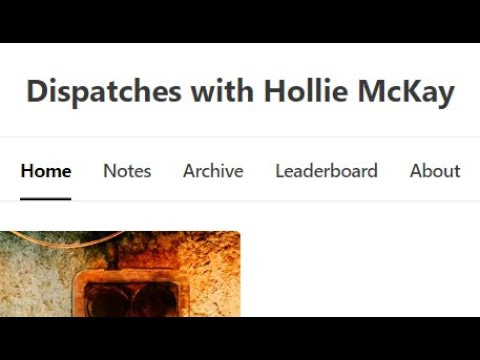Admin’s Note: Independent Journalism Needs Your Help More Than Ever
World Press Freedom Day 2024 was not about enabling climate change rhetoric.
World Press Freedom Day is celebrated at the beginning of May each year. It is, admittedly, not a well-known day of remembrance on planet Earth. The US press hardly mentions it.
According to Wikipedia, “World Press Freedom Day celebrates the fundamental principles of press freedom. It serves as a reminder to governments worldwide of their duty to respect and uphold the right of the press to freedom of expression, independence, and pluralism. It technically marks the anniversary of the Windhoek Declaration, a statement of free press principles crafted by African newspaper journalists in Windhoek, Namibia that took place from April 29th to May 3rd in 1991.”
The original core of the day is honoring the principle that a free press is a cornerstone of democratic societies. The day honors journalists who have lost their lives while exercising their profession. It takes dedication, perseverance, and bravery to share stories of human upheaval and loss. Motivated journalists give of their souls to contribute to raising awareness hoping to drive action to address pressing issues for people who would be forgotten in the fog of battle and the cruelty of power.
Consider Hollie’s latest video discussing just four stories from April 2024.
It starts with discussing how America has forgotten about Darfur, once the focus of a US expansion of nation building involvement in the battle against Al Qaeda, where we promised to make life better for Africans. That decade old promise has been neglected as regional genocide has once again turned ordinary people’s lives in to a nightmare.
Next, the discussion turns to sweatshops. But it’s not the typical Western woke disdain for the poor working conditions thar Hollie focuses on. Instead, the discussion turns to acknowledging that even the smallest slice of economic access, particularly for women, can mean so much to people in destitute parts of the world.
The video goes through the checklist of “who profits” from conflict discussion the usual suspects of profiteering from wars and adding the media itself to the list of major beneficiaries of warfare.
Then there’s a discussion about how Iran very carefully plays with its stockpile of “almost weapons grade” uranium continually refining and diluting its cache of fissionable material to stay just under the limits of violation, while at the same time telegraphing to the West and the Middle East that they have the means to enrich uranium to full weapons grade and place it into waiting warheads at will. Something plainly obvious to military analysts, but not really explained to ordinary people.
The video ends with a discussion asking the question, “Just how much intelligence did Iran gain about its missile and drone delivery system capabilities engaging the ‘best of the West’ defenses of the US coalition and Israel” from their most recent attack?”
There’s real gumshoe work that goes into investigative journalism. Reaching out to networks of contacts. Confirming leads and details. Piecing together vignettes to show the humanity behind the bombs, politics, and pronouncements. This kind of focus on world events and the impact global tension are important to preserve. But it’s not where the United Nations has taken World Press Freedom Day in 2024. Instead, UNESCO chose to focus its attention reporting about climate change.
This administrator cannot help but be disappointed that the poignant focus on human rights is not the vanguard of attention in a year when genocide is on the rise in Africa, both Eastern Europe and the Middle East teeter on regional brinksmanship, and ISIS-K once again probes for weak points to attack all of humanity. More than ever. The world needs to encourage and support journalists who will cover the issues that mainstream media or official agendas would rather not.
Those of you who read this that care that reporting on the human suffering from the cruelty of other humans deserves support. It means that independent reporters like Hollie McKay and other independent journalists will increasingly need to be encouraged and supported to keep covering “inconvenient” stories by concerned crowdfunding, as opposed to being sponsored by big media outlets, that increasingly limit their coverage to just the news that return-on-investment computations deem is fit to print.
Do ponder this sea change in the world as you reflect on what World Press Freedom is supposed to mean. Perhaps consider a generous patronage subscription to this Substack, or even a basic paid one so you can view and comment on all the stories that appear here.



